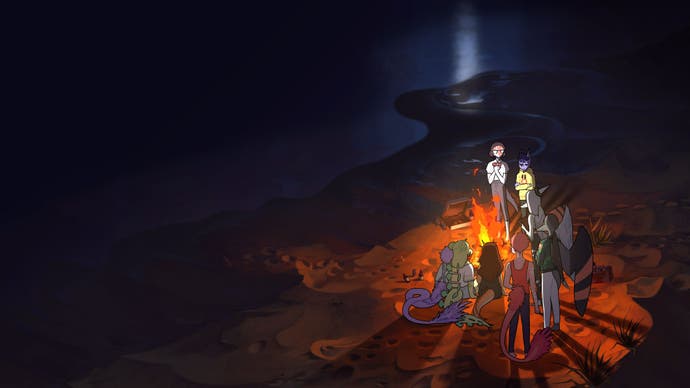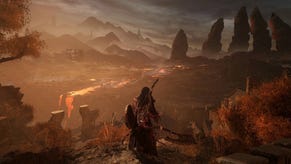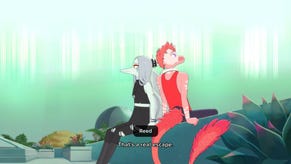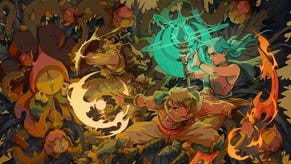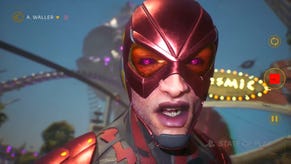Goodbye Volcano High review - killer tunes soundtrack a teen drama for the ages
Sonic youth.
There's something immortal about the golden era of high school movies and TV shows - a solid block of hyper-American 90s and early 00s dramedies that shaped, for better or worse, how a generation parsed teenhood and the idea of growing up. There were the pop-infused Brat Pack movies, the early edginess of Degrassi Junior High and My So-Called Life, and the cult classic Freaks and Geeks; we have Clueless, Cruel Intentions, 10 Things I Hate About You. Buffy the Vampire Slayer, beloved by so many, remains the last line of defence for Joss Whedon apologists. These projects didn't just have exceptionally savvy audio direction, but a genuine understanding of music as a narrative transceiver in a formative period when you're figuring out how to exist in a body and a world that doesn't become you.
It's usually not clear, fully-formed memories that bring you back to high school's greatest hits. Sometimes all it takes is a tiny sensorial cue - a whiff of bad cologne, or the way the sun hits your street in the evening. But more often than not, it's music. It's a riff, a vocal hook, a melody, a track on your Discman when your parents argued in the car. It was a taut, rollicking rhythm that gave you enough momentum to shake off the real world for a few minutes, the first big hit from a small local band, or the song everyone was into that summer when it was so hot that your friend's hula girl bobblehead melted on the car dashboard. The best coming-of-age soundtracks are powerful for a reason; the magic that swirls around first bands and the raw energy of young songwriting even more so.
Goodbye Volcano High takes this unquantifiable high school vibe, drenches it in exquisitely catchy power-pop, and creates an absolute belter of a story that marries slice-of-life dinosaur teendom with a slow, inescapable horror. For protagonist Fang, heading back to school is complicated. It's the start of senior year, and they've had a pretty rough summer, albeit one where they gave themselves a sweet new makeover that feels more like a low-key suit of armour. They've been writing new music for their band Worm Drama, determined to go on tour after graduation without realising that their bandmates have slightly different priorities. Fang worries their parents aren't fully in sync with their goal as a musician with no plans for college; they've also relatively recently come out as non-binary. All this tumult is compounded by looming disaster - not entirely surprising if you're familiar with the fate of the dinosaurs, but devastating all the same.
Gameplay consists of dialogue-based choices that create different branching narrative paths, and rhythm game sections that really demand a controller rather than keyboard buttons. Having spent summer away from their friends means that Fang has to rebuild their personal affinities with different characters, including a mystery admirer who starts texting them anonymously, and strengthen their relationships.
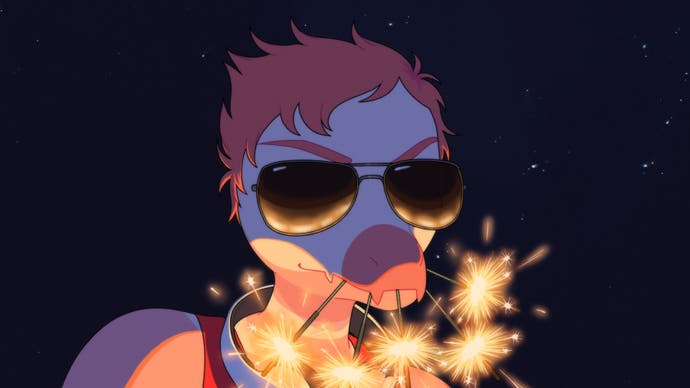
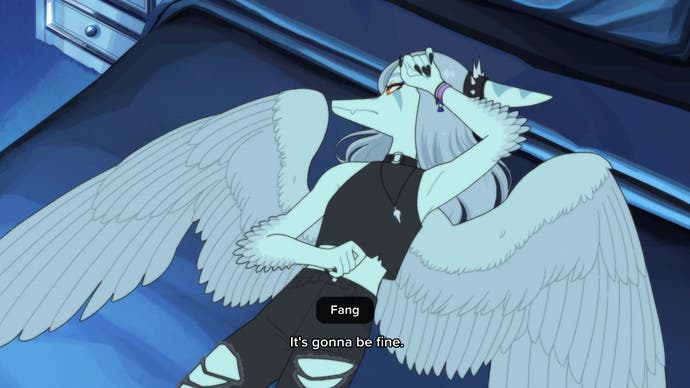
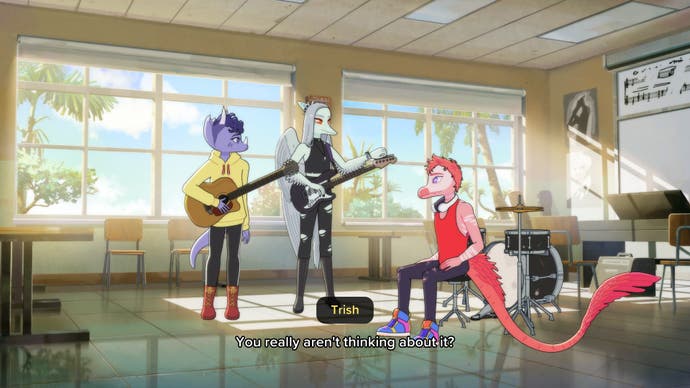
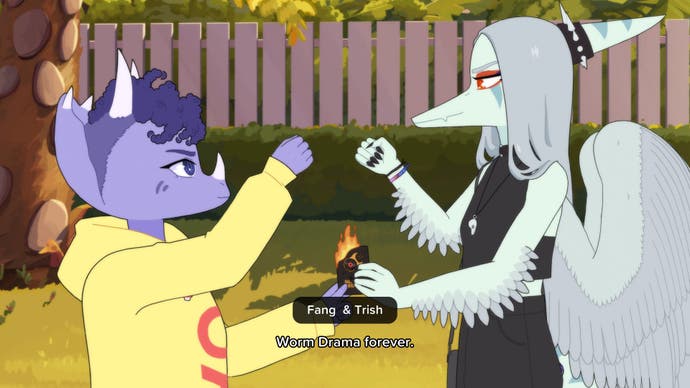
For instance, building a strong affinity with Reed, Worm Drama's laidback drummer who likes to hide out on the school roof, means unlocking Reed content in the form of flashbacks and photos (Reed also oversees an ongoing Legends & Lore tabletop game, one of my favourite parts of the story). Occasionally I found myself fumbling the rhythm sections hard - I half-expected the band to break the fourth wall and drag my terrible coordination - but the exhilaration of doing as well as I could in these brief performances fitted beautifully with Worm Drama's scrappy narrative.
The game's biggest triumph is its core simplicity - the chance to be with Fang and company at the end of the world, to spend time with these characters as full-fledged individuals rather than as one-dimensional vehicles for the same old teen cliches. There is no byzantine political manoeuvring among cliques or impassioned prom revelations or surprise buckets of pig's blood. This isn't to say Volcano High doesn't utilise senior-year stereotypes - there's still tension between Type A go-getters ready for college and kids like Fang who want control of their own dreams, and the eager, almost cloying enthusiasm of super-positive characters like Sage and Stella that verges on saccharine overkill. There's sibling rivalry and awkward flirting and clandestine beers on the beach - all part of the DNA of being a middle-class kid in a suburban American (or in this case, Pangaean) town. The real heart of Volcano High's storytelling is a fierce devotion to its characters as whole, complete people; as a result, its conflicts feel deeply true and personal rather than perfunctory plot points leading to a big self-congratulatory finale.
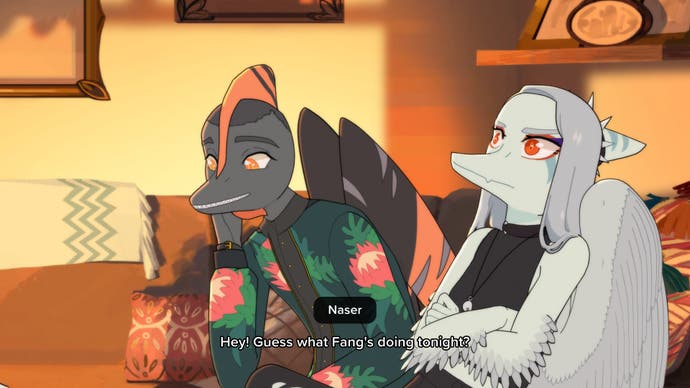
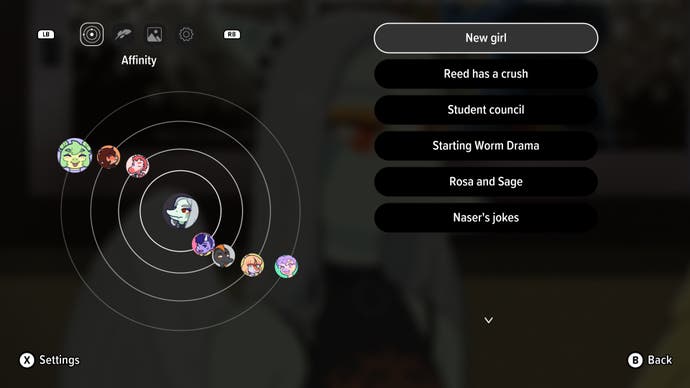
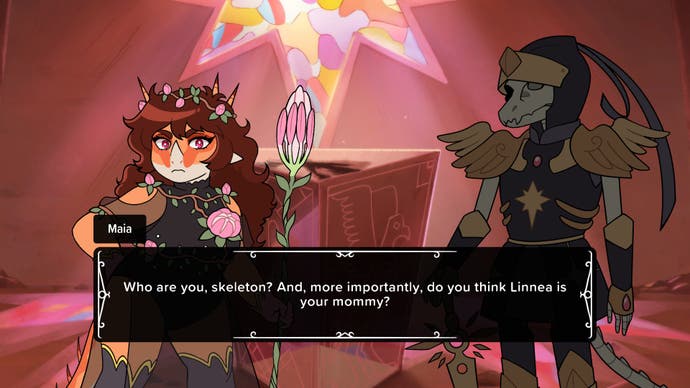
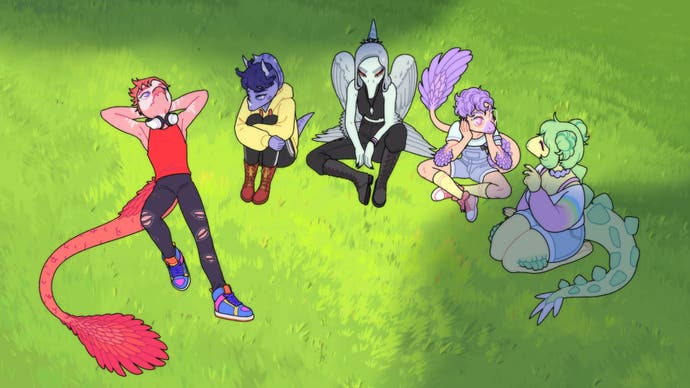
There is no lesson to be learned here, other than to do what you love until you can't. It's this fierce drive toward autonomy in the face of despair that elevates Volcano High above standard coming-of-age fare, which tends to tie up these hormonal dramatic stories with a lot of sound but no fury. Worm Drama's sound - a soft, shoegazy strain of power pop - comes from Dabu, also known as KO_OP's sound director Omar Dabbous, who also created the Dwarf Fortress soundtrack.
It's through Dabu's instinctive understanding of young, evolving musicianship that Fang finds their footing as a songwriter; at one point in the story the band doesn't have time to write new material for the battle of the bands, which means reworking old songs and hoping that nobody notices. We never get to hear what Worm Drama sounded like before this scramble for reinvention, yet Dabu and vocalist Brigitte Naggar manage to conjure just enough of the band's old ghost in these hastily "rewritten" songs through radiant layers of emotion. My favourite is "12 o'clock," a four-minute slow burn that stares death in the eye with the sort of immutable calm and self-assurance one can only hope to begin cultivating before hitting retirement.
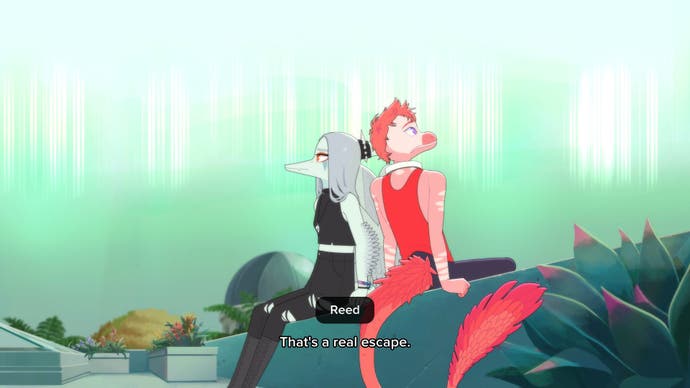
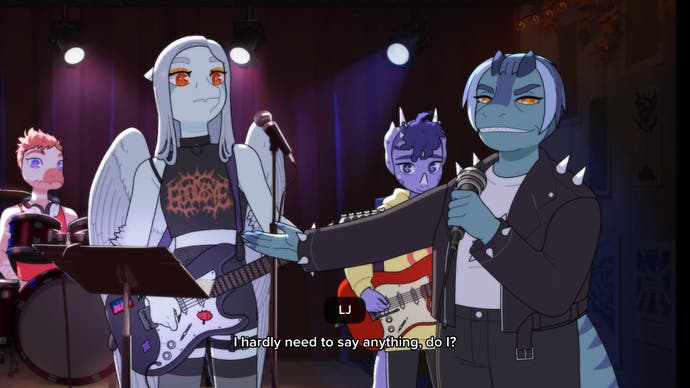
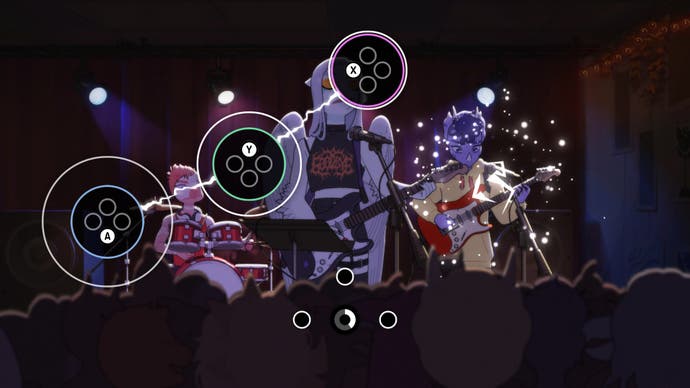
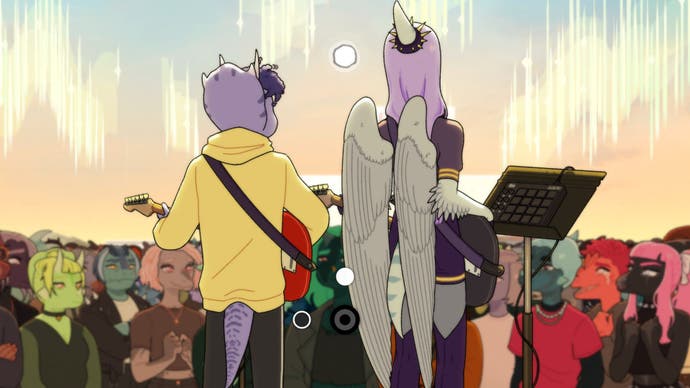
But it's "Pretty Heroes" - the big finale song named after an in-game anime that sounds suspiciously like Sailor Moon - that well and truly broke me. This is one of the few teen narratives that stabs you straight in the heart and twists the knife in deep, and I'd do it all over again just to experience the music in context for maximum heartbreak. Broadly speaking, there are two kinds of high school stories - ones created by adults to navel gaze about their forgotten youth and project old regrets onto a fresh canvas, and ones created by actual teenagers. Goodbye Volcano High is one of the first times I've been able to fully inhabit a high school narrative without feeling the cynical, calculating spectre of a grown writer in every quip or interaction; this hits hard when you think about how, while teen icons like Whedon et al. have been accused of being abusive, awful people, they were also awfully successful at framing how an entire generation remembers and idealise high school. If Volcano High is KO_OP's love letter to the chutzpah of youth - to living, loving and dying on your own terms - it does so blissfully free of these restraints.
After I finished Goodbye Volcano High, after a brief recess where I had a little cry, I found myself rewatching The OC. In college I'd mostly absorbed parts of the show when someone left it on in the next room. In the wake of Volcano High, it wasn't just "California" that I wanted to hear, but the series-defining sequence of lone misfit Ryan (Ben McKenzie) emerging from his ritzy new digs into merciless white-hot sunlight, next to a glistening infinity pool with all of Newport Beach at his feet. The OC has little to do with Volcano High beyond the idyllic beachy high school setting - they're completely different types of stories. But Ryan and the poolhouse is an almost perfect visual inversion of Volcano High's emotionally ruinous end - a reminder not to go gently into that good light, a crystal-clear moment of collective wonder and defiance in the face of something unknowable and unchangeable.
